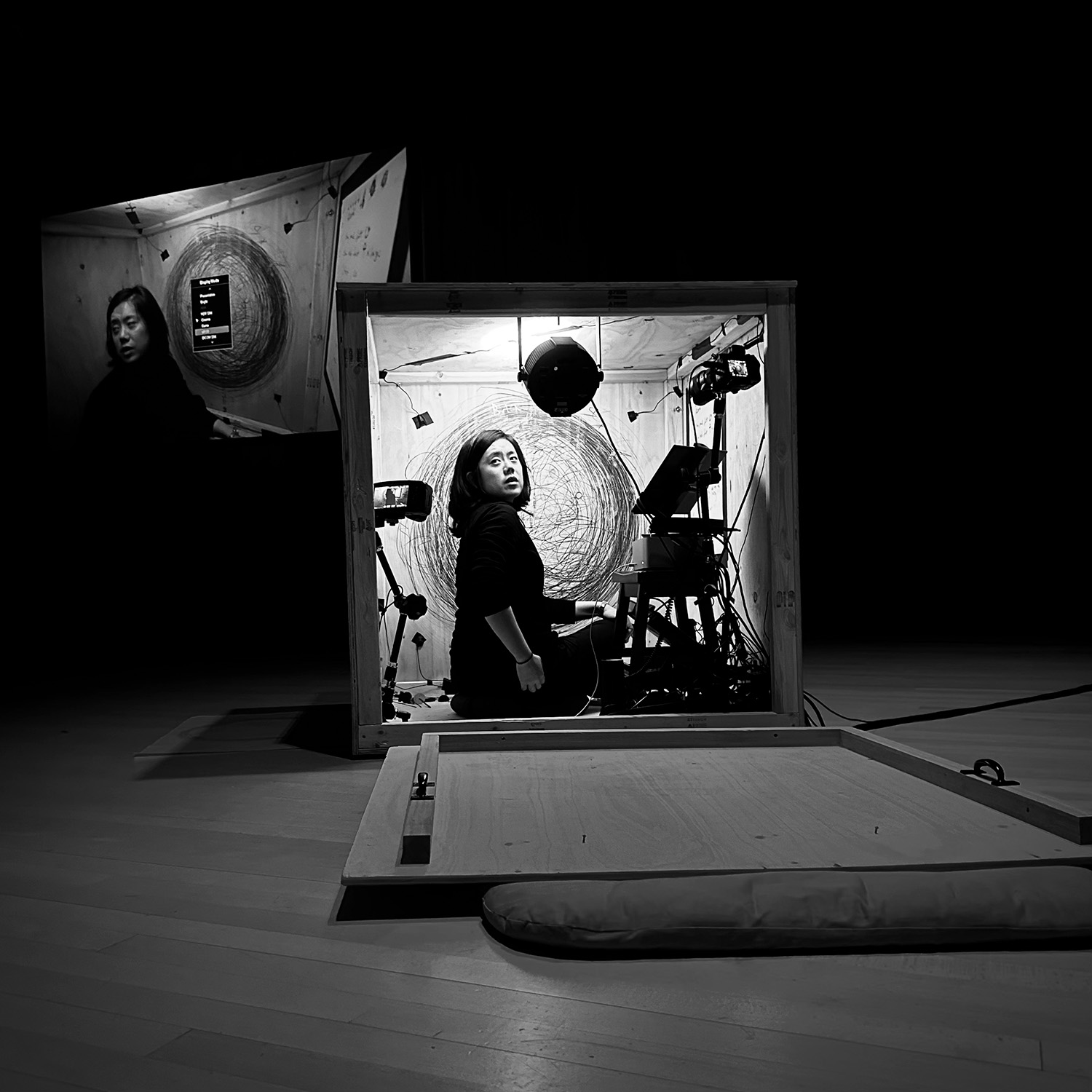Bio
Julie Zhu is a composer, artist, and carillonist. Her work is conceptual and transdisciplinary, operating on an expansive definition of algorithm. Creative and ethical use of AI and machine learning in the arts is one of her research interests and the focus of her Presidential Postdoctoral Fellowship at the University of Michigan.
As an advocate for intermedia composition, Zhu collaborates with artists and musicians globally. The results of these collaborations have been exhibited at and performed in studios and residencies throughout Europe, North America, and Asia, but namely Carnegie Hall (NYC), Herbst Theatre (San Francisco), IRCAM (Paris, France), digitIZMir (Izmir, Turkey), Tetramatyka Festival (Lviv, Ukraine), Sansusī (Latvia), Chicago Home Theater Festival, Miami Design District, College Band Director’s National Association, ICMC (Shenzhen, China), among others. Notable commissions came from Radio France, GMEM, San Francisco Contemporary Music Players, and the University of Chicago Carillon.
Many of Zhu’s pieces are characterized by constraints: whether it is putting a percussionist (or herself) in a wooden box, drawing circles that are amplified through a speaker dome, or hiding the harpsichordist and keyboard in a cardboard house with live video, or developing the just-intonated harmonic architecture for the specific rotation, orbit, and angle of Mercury, Venus, Earth, and Mars in a string quartet. For Zhu, art is best as an anonymous gesture and as a trap.
As a carillonist, Zhu regularly performs on the Burton and Lurie Tower at the University of Michigan and concertizes in the summer. During her time as a visual artist in New York City, she was the resident carillonneur at Saint Thomas Church Fifth Avenue.

